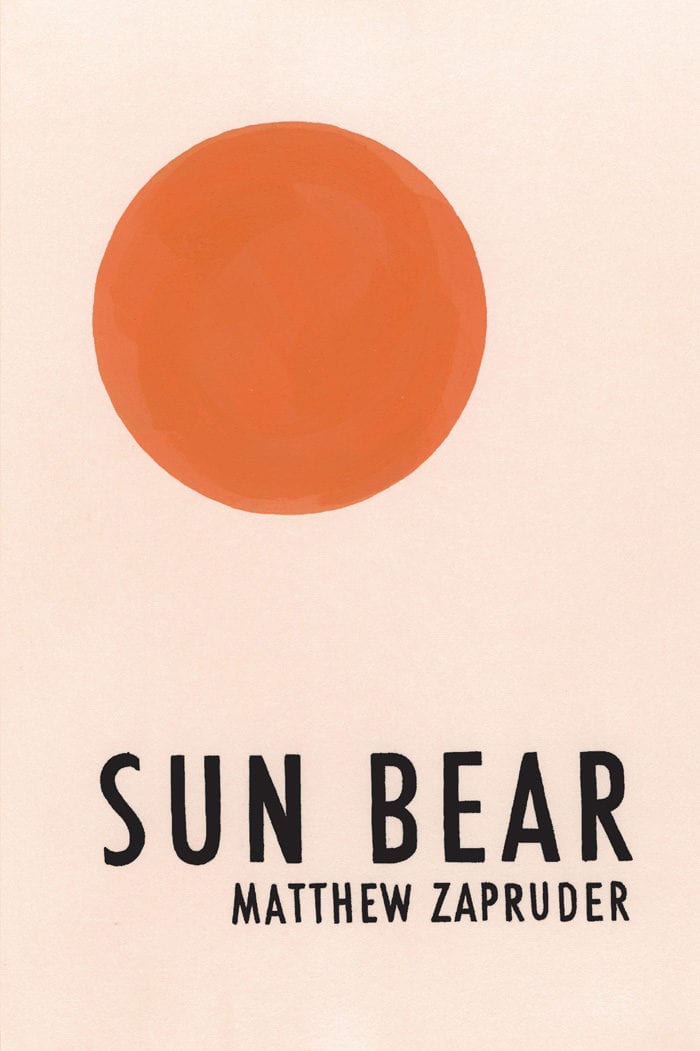
Expansive and tender, the poems in Sun Bear, the fourth collection from Matthew Zapruder, move from grand contemplation to intimate revelation in the space of a few lines. Following a languid stream of consciousness, Zapruder’s poems begin as a faint inkling, an early bloom of thought, and swiftly unfold with both humor and melancholy into wide-reaching meditations, their colliding emotions unveiling an amazement with the present moment. The image of a dead spider leads to visions of an upcoming marriage, which lead in turn to workmen sitting around a fountain, reading “silently together and alone.” Complicated states of mind guide our attention as we encounter some of the loneliest locales in modern human life—and some of the loveliest. Always willing to risk sentiment as he navigates a subtle, sometimes wincing sense of the absurd, Zapruder writes poems that are fully alive and alert. Sun Bear reveals a web that connects us all.
ISBN: 9781556594632
Format: Paperback
Reviews
“Zapruder’s poems don’t merely attempt beauty; they attain it.” —Boston Review
“Matthew Zapruder has a razor eye for the remnants and revenants of modern culture.” —New York Times
“With dynamic, logically complex sentences, Zapruder posits a world that is both extraordinary and refreshingly ordinary.” —BOMB
“In a thought-scape rich with memories of friends and flower shops, unexpected and understated revelations, Zapruder spins modern unpunctuated soliloquies.” —Publishers Weekly
“Most of the poems in Matthew Zapruder’s new collection could be described as consciousness improvisations… it will wind its way almost carelessly, usually with little or no punctuation, as though the poem itself is walking and noticing various things along the way.” —Hudson Review
